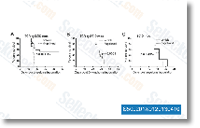A prior examine demonstrated that GSK 3b inhibition suppresses the binding of NF B p65 on the nuclear co activator CBP. This is in agreement with our function showing that acetylation of p65 at lysine 310 is suppressed by inactive GSK 3b. The phenomenon that inhibition of GSK 3b impairs acetylation of proteins also takes place to the tumor suppressor protein p53. Our information give a molecular comprehending of how GSK 3b inhibition suppresses NF B mediated production of TNF a in LPS stimulated microglia. LPS stimulation of microglia activates all three MAPK pathways, p38, ERK1 2 and JNK. Investigation within the mechanism by which GSK 3b positively regulates LPS induced TNF a demonstrated that loss of GSK 3b activity abrogated LPS induced activation of JNK, lead ing to decreased c Jun phosphorylation and AP one activa tion.
Pharmacologically, we more demonstrated that SP600125, a JNK inhibitor, exhibited a related ability to block AP one activation and TNF a manufacturing. Studies over the position of GSK MLN8237 structure 3b in JNK activation are controver sial. 1 former examine showed that homozygous dis ruption of GSK 3b substantially sensitizes mouse embryonic fibroblasts to JNK activation induced by lyso phosphatidic acid and sphingosine one phosphate. For the contrary, GSK 3b has also been proven for being a posi tive regulator of TNF induced activation of JNK. In addition, inhibition of GSK 3b by lithium has no effect on LPS induced JNK activation in human mono cytic cells. These distinctions may reflect the usage of unique cell kinds.
The current data may be the to begin with to present a constructive regulatory part for GSK 3b in LPS induced JNK activation in microglia, read the full info here suggesting the reduc tion of LPS induced TNF a by GSK 3b inactivation is due, no less than in component, to inhibition with the downstream sig naling molecule JNK. In the JNK pathway, activating stimuli activate MAP3K members, like MLK3 or MEKK1, which in turn phosphorylate MAP2K members including MKK4 and MKK7. The activated MAP2Ks then phosphorylate JNK. It has been reported that GSK 3b physically associ ates with and activates MEKK1 beneath either basal or UV or TNF a stimulated circumstances, thereby stimulat ing the JNK pathway. The current data demon strates that MLK3 inhibitor markedly inhibites JNK activation, indicating that, in microglia, the activation of JNK in response to LPS is mediated via MLK3. MLK3 autophosphorylation continues to be proven to correlate tightly with activity.
Our final results reveal that attenuation of LPS induced MLK3 autopho sphorylation  by decreasing GSK 3b activity prevents a strain kinase cascade that contributes to inactivation of JNK. To our practical knowledge, there may be no prior report with regards to the result of GSK 3b on autophosphorylation of MLK3. This suggests that GSK 3b inhibition abrogates LPS induced activation of JNK due, at the least partially, to a lack of acti vation of MLK3.
by decreasing GSK 3b activity prevents a strain kinase cascade that contributes to inactivation of JNK. To our practical knowledge, there may be no prior report with regards to the result of GSK 3b on autophosphorylation of MLK3. This suggests that GSK 3b inhibition abrogates LPS induced activation of JNK due, at the least partially, to a lack of acti vation of MLK3.
Peptide Solubility
The prohormones are then packaged into membrane-bound secretory vesicles.
